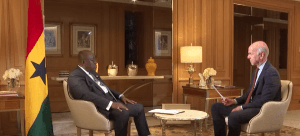- Abaare Reports
- Addi Kujay
- AfricaCNNnews
- Afriyie Kwaku Boachie
- AHAFO
- Alby News Ghana
- ASHANTI
- BONO EAST
- BRONG AHAFO
- Canard Afriq
- Cash In Trash
- CENTRAL
- Cherries
- Club Mate
- Courageous World
- Crest City News
- Current Affairs
- Daily Biz
- DailySpot
- Daniel Kaku
- Da Spicy News
- DC KWAME KWAKYE
- EASTERN
- EBI
- Facts Check
- Gabs Feed
- Ghana News Timeline
- Ghana News Update
- Godblessed1
- GREATER ACCRA
- Great Okocha
- Harry Graphic
- iNews
- Info News Ghana
- King B
- Kofipedia
- Lovely
- Managing GH
- Man Zekay
- Mart News Empire
- Maxkaytheblogger
- Mohammed Zakwan
- MyDailyNews
- Nana Kay News
- News Hub GH
- News Today
- News Zone 360
- Nine 9
- NORTH EAST
- NORTHERN
- ObuabaMedia
- OTI
- Priests News
- Royalnews360
- Sahara Writers
- SAVANNAH
- Simpsons Blog
- Skate News
- Smart News Ghana
- SpinnerWeb
- Teddytheblogger
- Ted News Ghana
- The news
- TheoNews
- Trending Now
- UPPER EAST
- UPPER WEST
- VOLTA
- Wadupgh
- Web Brief
- WESTERN
- WESTERN NORTH
Nana Kay News Blog of Wednesday, 31 May 2023
Source: Island Reporters
Supreme Court strikes out law that allowed government to impose restrictions during Covid-19 pandemic

In a unanimous decision, the Supreme Court declared unconstitutional the law that permitted the government to impose restrictions during the Covid-19 pandemic.
In 2020, the legislature enacted the Imposition of Restrictions Act to permit the imposition of the restrictions outlined in Article 21 of Ghana's 1992 constitution.
In the interest of defence, public safety, public health, or the provision of essential services, the aforementioned constitutional provisions permit restrictions to be placed on the movement or residence of any individual or group of individuals within Ghana.
This law authorized the government to issue a variety of instruments while health officials managed the Covivirus-19 pandemic.
This is the law that permitted the President, among other things, to restrict public gatherings, close schools, and impose guidelines for religious gatherings.
Kwadwo Appiagyei-Atua, a law professor and human rights advocate, and eight others took the government to the Supreme Court on the grounds that the law in question was unconstitutional.
He argued that it unlawfully authorized the President to unilaterally suspend fundamental human rights and freedoms in the whole or a portion of Ghana, excluding the special role of the Chief Justice and the Superior Court of Judicature in managing or regulating the suspension of fundamental human rights and freedoms in the whole or a portion of Ghana; and excluding the role of Parliament in managing or regulating the suspension of fundamental human rights and freedoms in the wholly or a portion of Ghana.
This view was supported by a seven-member tribunal presided over by Justice Jones Dotse.
The court determined that the Imposition of Restrictions Act is unconstitutional.
Therefore, he announced that the law is declared unconstitutional and null and invalid. On June 7, the court's complete reasons will be made available.
Jones Dotse, Nene Amegatcher, Nii Ashie Kotey, Lovelace Johnson, Amadu Tanko, Prof. Henrietta Mensah Bonsu, and Emmanuel Kulendi heard the case.
Business










